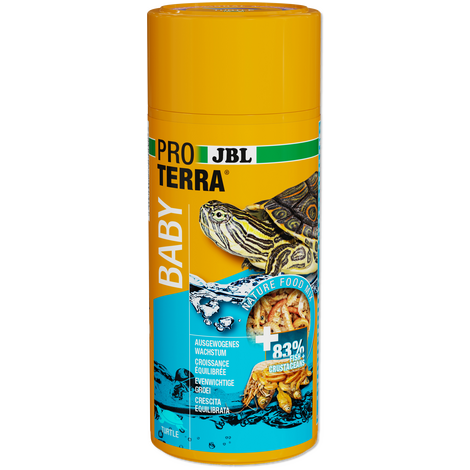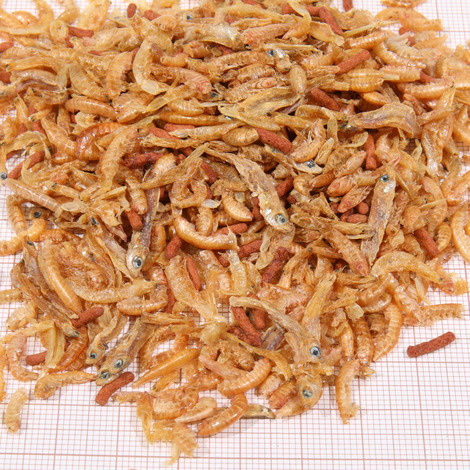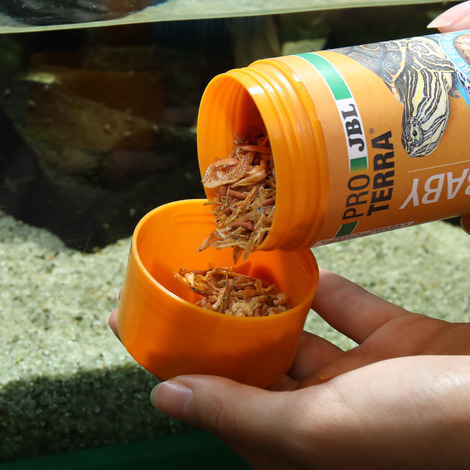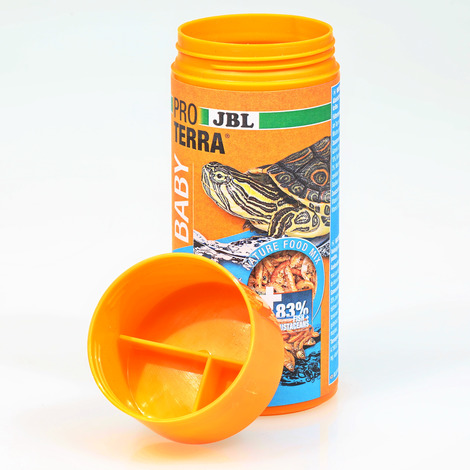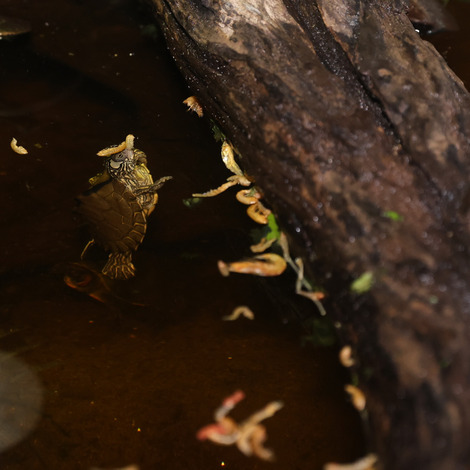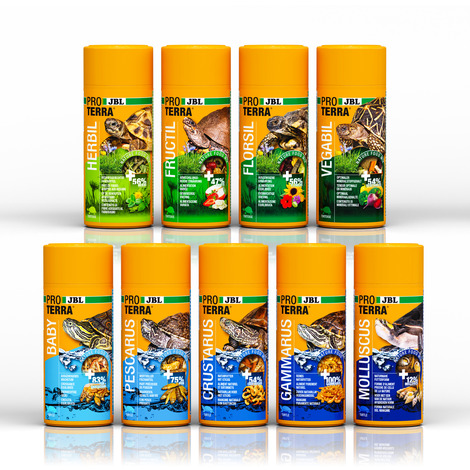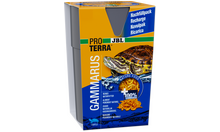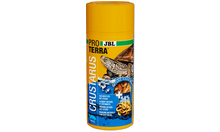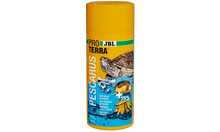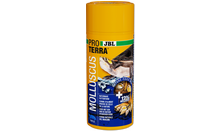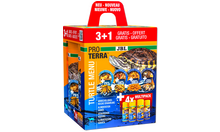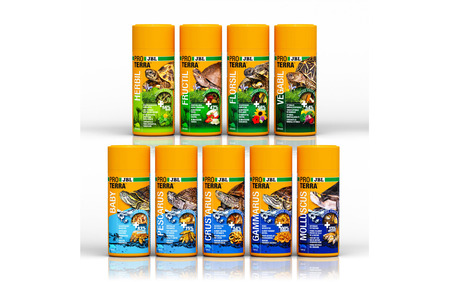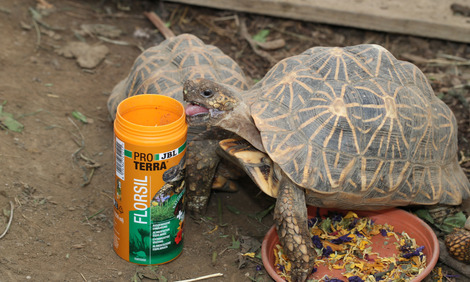Especially for the nutritional requirements of turtles and terrapins
Most turtles and terrapins are omnivores. They particularly like to eat fish, other aquatic animals and often also aquatic plants. JBL offers a comprehensive range for the species-appropriate diet for turtles, to meet the respective requirements of the animals’ size. Dried fish, molluscs, water insects and crustaceans are most important and constitute a species-appropriate, natural diet. Young turtles basically eat the same as adult aquatic and terrapin turtles,but are more carnivorous. Adult turtles eat more and more plants as they get older. When it comes to feeder animals, the small turtles only ever choose the smaller versions, as they are unable to easily bite everything off, despite their sharp jaws.
Other good reasons to feed JBL food
Impressive palatability for turtles: Practical research including feeds in the wild. No vitamin loss thanks to airtight packaging. The JBL food tins and buckets are 100 % recyclable, as the tin, sealing film, label and lid are made from one PP mono-material. There is no need to separate the label from the tin, as is actually necessary with other food tins. The thickness of the plastic has also been reduced, as very high-quality PP (polypropylene) is used. The use of polypropylene ensures full recyclability at the end of the product life cycle. The recycled material is used for the production of new products and thus the spread of pollutants in the environment is minimised.
Turtle species for which this food is ideal (examples):
- Cooter turtles (all species)
- Red-bellied short-necked turtle
- Mud turtles
- Ornamental turtles
- Softshell turtles
- Musk turtles
- Spotted turtle
- Wood turtles
- Terrapins
- Map turtles
- Chinese three-keeled pond turtle
JBL expeditions often visit turtle habitats, be it in the deserts or, even more frequently, in the wetlands of the tropics. The observations of their way of life and eating habits are incorporated into the development of the JBL foods. This information directly from the wild is extremely valuable, as it would otherwise hardly be available.
The aim should always be to care for the animals in a species-appropriate way and ideally to provide for offspring in order to reduce the removal of species from the wild. Although breeding is not absolutely necessary for some species, as the species relevant to the trade come from offspring or are not endangered, JBL nevertheless considers it desirable to breed pets.
JBL PROTERRA BABY
Special food mix for young aquatic and terrapin turtles
- Complete food for baby aquatic turtles: sieved and cleaned small crustaceans (approx. 1-2 cm) & fish (2-4 cm) as well as food sticks (1 cm) for young aquatic turtles
- Excellent acceptance of young aquatic and terrapin turtles: gammarus and shrimps. Fish sticks with vitamin supplements
- Healthy shell growth thanks to natural calcium content, immunity is developed and stabilised by means of multivitamin complex and vitamin C, prevention of deficiency diseases
- No artificial colours or preservatives added. Tins, lids, sealing film and label 100 % recyclable
- Package contents: 1 water and light-proof tin, sealed for freshness with dried shrimps, small fish, Gammarus and sticks. Dosing aid in lid
